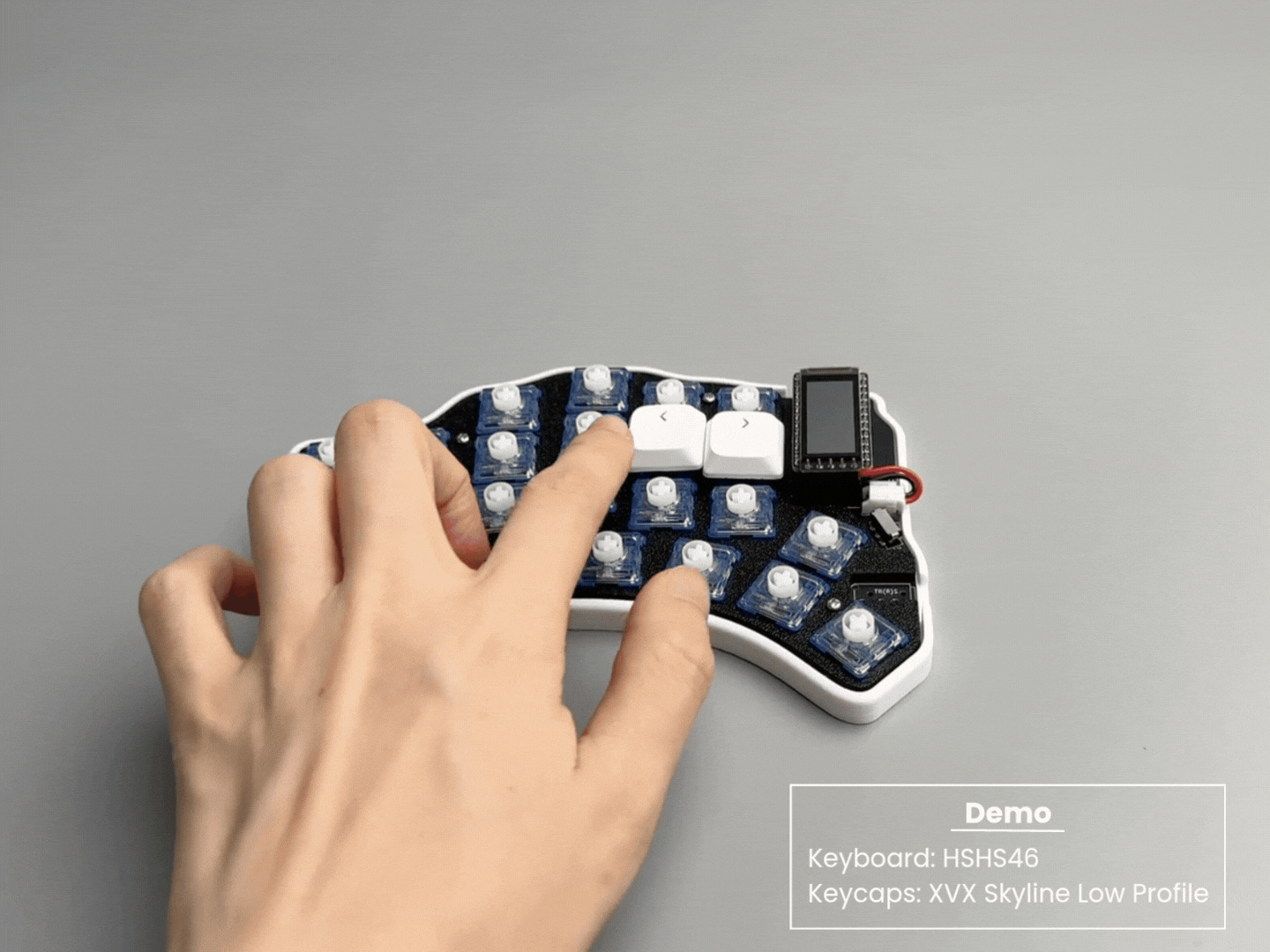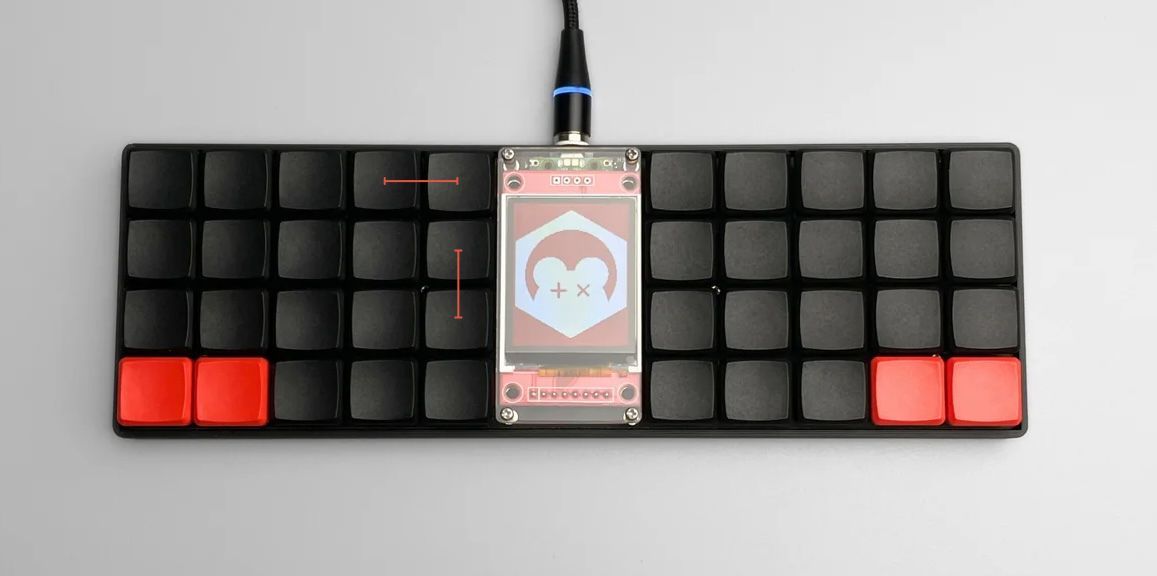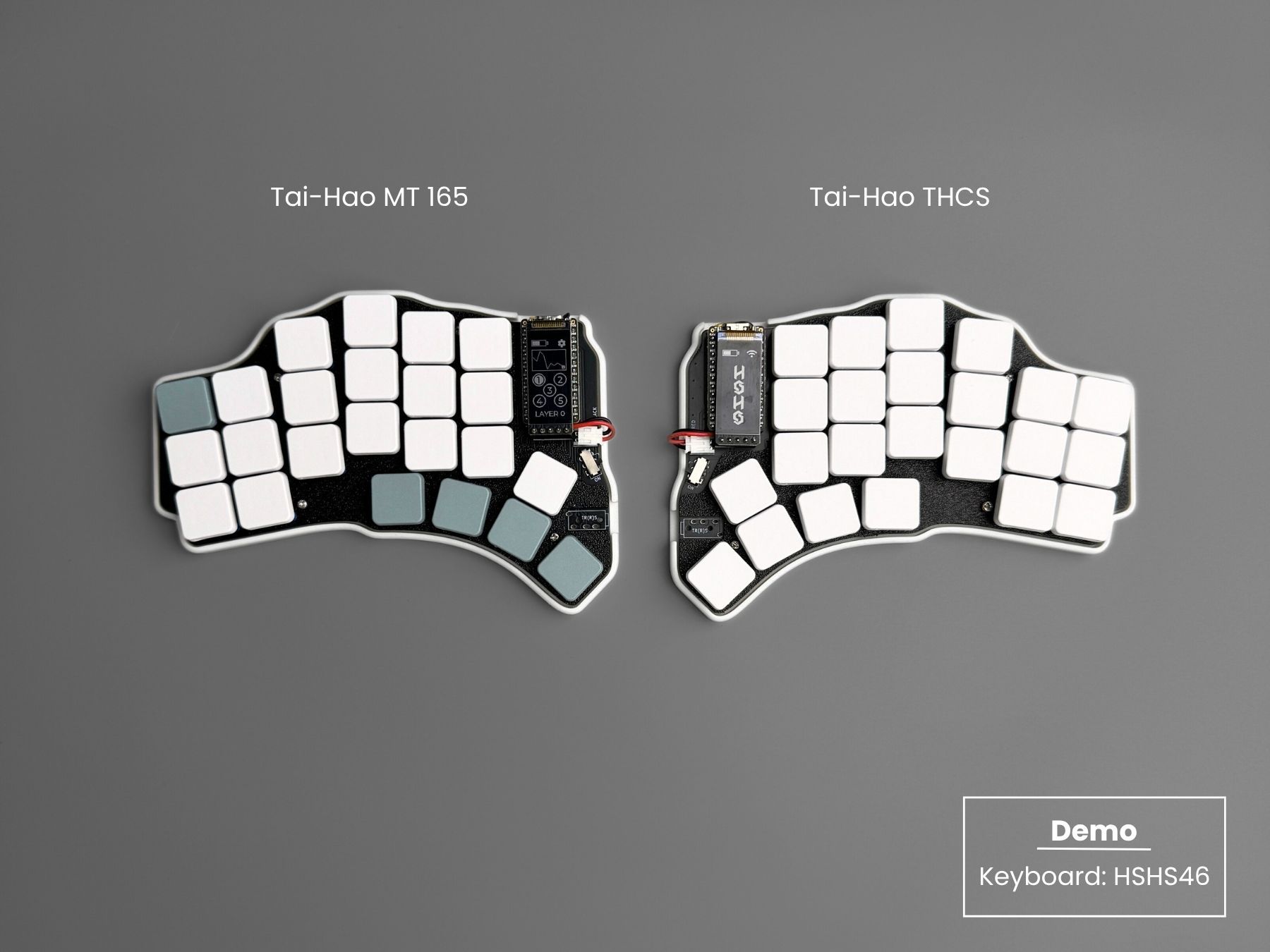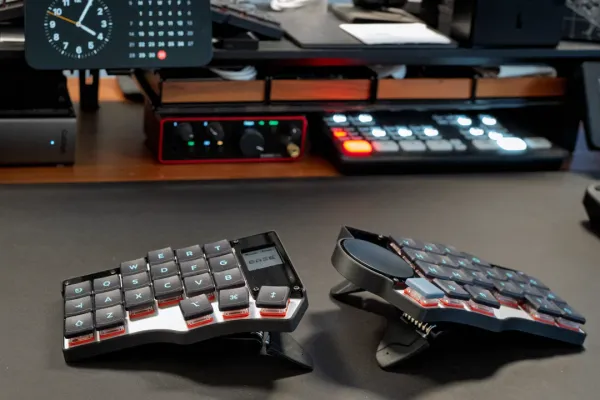Choc Spacing Keycaps for Choc v2 Key Switches
Kailh Choc v2 switches are becoming incredibly popular this year. We are seeing new Choc v2 key switches (even featuring silent linear / silent tactile / advanced actuation) pop up everywhere!
We talked about the main differences between the two most common low-profile switches (the Choc v1 and Choc v2) in a previous post. However, this brings up a question.
"If I modify the footprint on the PCB to fit Choc v2 key switches, can I actually use them on my keyboard?"
In the past, the answer wasn’t a simple "yes". Even the keyboard is compatible with Choc v2 key switches, it is hard to find keycaps that fits the keyboard. But today, thanks to Tai-Hao, we finally have a real solution.
The "Spacing" Problem
First, let’s look at what happens if you try to use standard keycaps on a compact Choc-Spaced keyboard.

As you can see, the keys hit each other. To understand why, we need to talk about the difference between Choc Spacing and Standard Spacing.
Choc Spacing VS Standard Spacing
The main reason for the collision comes down to the specific measurements (or "pitch") of the keyboard layout.
- Standard (MX) Spacing: This is what was found on most traditional mechanical keyboards. The distance from the center of one key to the next is usually around 19.05mm x 19.05mm (or 19.00mm x 19.00mm).
- Choc Spacing: This is a tighter and more compact layout keyboard design. The distance between keys is usually 18mm x 17mm. Because the keys are closer together, the keycaps need to be smaller (around 17.5mm x 16.5mm) so they don't touch.

Note: Some super-compact boards, like the bancouver40, are even tighter and require 16.5mm x 16.5mm caps.
How to check the keyboard spacing
If you aren't sure if the keyboard is "Choc" or "Standard" layout, here is a quick guide.
Generally, split ergonomic keyboards like the Urchin, Piantor, and Hillside use the Choc spacing. Keyboards like the Lily58, Allium58, and Corne v4 Choc use Standard spacing.
If you want to be 100% sure and you have the design files, here is a little trick using KiCad:
- Open the PCB file in KiCad.
- Click on a key switch footprint and press “e”.
- A dialog box will pop up showing the X and Y coordinates of the key.
Example 1: Sweep Bling LP (Choc Spacing)
The X position of a key and the one next to it: 66.7mm - 48.686mm = 18.014 mm


The Y position of a key and the one below it: 55.372mm - 38.382mm = 16.99 mm


As a result, the standard-spaced keycaps (18mm or larger) cannot be used in this Sweep design.
Example 2: Corne v4 Choc (Standard Spacing)
The X position of a key and the one next to it: 52.3875mm - 33.3375mm = 19.05 mm


The Y position of a key and the one below it: 9.525mm - (-9.525)mm = 19.05 mm


The space between the 2 keys are enough for using standard-spaced keycaps in the Corne v4 Choc keyboard.
What made Choc v2 Key Switches hard to use?
- The most popular Choc-spaced keycaps (like MBK or Chocfox) are made for Choc v1 switches. The stems won't fit on the Choc v2 "+" stems.
- There are low-profile keycaps with the "+" stem (like XVX or SMOLO), but they are Standard size. They are too big for compact keyboards.
So, even if your keyboard could technically fit the Choc v2 switch, you couldn't find keycaps that were small enough to type on!
The Good News
This is why we are so excited about the new release from Tai-Hao.

They have released two new types of keycaps (the MT 165 and THCS) that solve the issues

- They have the "+" stem (perfect for Choc v2 switches).
- They are designed with Choc spacing dimensions (perfect for compact keyboards).


This was probably the last missing piece of the puzzle that allows using the Choc v2 key switches on popular keyboard designs.
Is there any split keyboard that uses Choc v2 key switches?
That same question came up in the previous article. With Tai-Hao’s new Choc-spaced keycaps that fit Choc v2 switches, the list has gotten a lot longer now.











